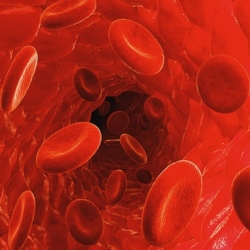
A research team led by the Tokyo-based National Cancer Center Japan has developed a new test to diagnose 13 kinds of cancers from a single drop of blood, with a clinical study set to start from next month. The center’s research and ethics screening committee gave the green light to the study in mid-July.
The research team will apply to the central government to put the new test into practical use within three years, at the earliest.
Thus far, there has been no test to diagnose multiple kinds of cancers at one time. If the new test is introduced in comprehensive medical examinations and other checkups, deaths from cancer could be reduced.
The new test utilizes microRNA (miRNA), a substance that is secreted from cells into the blood and regulates the movements of genes. Types of miRNA differ between cancer cells and normal cells, and they do not decompose for a certain period of time.
The team is composed of researchers from the center, Toray Industries Inc. — which has the testing technology — and other institutions. They succeeded in identifying miRNA specific to 13 kinds of cancers, such as breast, lung, stomach, colorectal, esophagus, liver and pancreatic cancers, from the preserved blood of about 40,000 patients, most of whom were cancer sufferers.
From a single drop of blood, the researchers could diagnose all the cancers, including relatively early stage 1 cancers, with more than 95 percent accuracy. Breast cancer was diagnosed with 97 percent accuracy.
However, the properties of miRNA could have changed in preserved blood. Therefore, in the planned clinical study, the research team will use fresh blood provided by about 3,000 people, including patients and healthy people.
For early detection of cancers such as breast, stomach, lung and colorectal, examinations using X-rays and endoscopy are said to be effective. However, people need to take separate examinations for each part of the body.
Even with the new test method, detailed examinations will be required to confirm a diagnosis.
Yet Takahiro Ochiya, head of the Molecular and Cellular Medicine Division at the National Cancer Center Research Institute, said: “Patients will not need to take multiple tests. In the future, it will become possible to identify cancer stages and characteristics.”
Prof. Masahiko Kuroda, chief of the Molecular Pathology Department of the Tokyo Medical University, said: “In Europe, research aimed at early detection of diseases using miRNA is being actively pursued, but there haven’t been any studies where analysis was conducted on so many patients like this one. So this should prove very useful.”Speech
